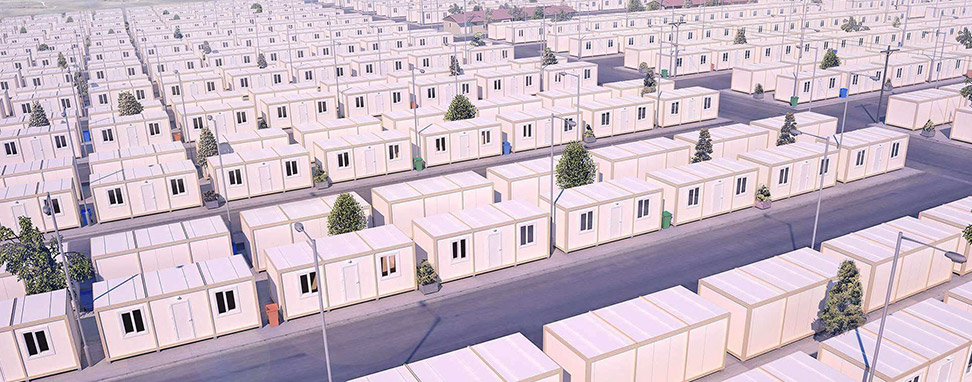A construction site camp plays a crucial role in the success of large-scale construction projects, especially those in remote or challenging locations. These camps provide essential facilities and accommodations for workers, offering a safe, convenient, and efficient living environment. Beyond basic shelter, modern construction site camps are designed to ensure worker well-being and productivity while minimizing environmental impact.
Construction projects often take place in areas far from urban centers, where access to housing and amenities is limited. Construction site camps serve as temporary settlements that house workers, supervisors, and support staff throughout the duration of the project. These camps ensure that workers are readily available on-site, reducing commute times and delays, which in turn improves overall project efficiency.
Moreover, by providing comfortable living conditions, site camps contribute to worker morale and satisfaction. A well-designed camp reduces fatigue and stress, enabling workers to focus on their tasks and maintain high productivity levels.
The backbone of any construction site camp is its accommodation units. These can range from modular container homes to prefabricated buildings. Modern units are designed to be durable, weather-resistant, and easy to assemble, allowing for rapid deployment even in harsh conditions.
Each unit typically includes sleeping quarters, storage for personal belongings, and climate control features such as air conditioning and heating to ensure comfort in various climates.

Proper nutrition is essential for construction workers, who often engage in physically demanding tasks. Site camps include communal dining areas and fully equipped kitchens to provide meals. Some camps even partner with catering services to offer diverse, nutritious menus.
Hygiene facilities are a vital component of any construction site camp. Modern camps are equipped with restrooms, showers, and laundry areas, ensuring that workers have access to clean and sanitary environments. Many camps also include wastewater treatment systems to manage sanitation in an eco-friendly manner.
To promote worker well-being, many construction site camps feature recreation areas such as gyms, sports courts, and lounges. These spaces allow workers to relax and recharge after a long day, fostering a sense of community and reducing burnout.
Worker safety is a top priority on construction sites, and site camps are no exception. Camps are typically equipped with security systems, perimeter fencing, and on-site personnel to ensure a safe living environment. Emergency response systems, such as fire alarms and medical facilities, are also commonly included.
By reducing commuting times and ensuring that workers are well-rested and nourished, construction site camps enable crews to focus their energy on completing tasks efficiently.
Centralized accommodations eliminate the need for costly daily transport and external lodging arrangements, helping to reduce overall project expenses. Prefabricated and modular designs also minimize setup and teardown costs.
Construction site camps can be easily customized and expanded to accommodate varying project sizes. This adaptability ensures that the camp remains functional even as workforce needs evolve.
Modern camps incorporate sustainable practices such as energy-efficient lighting, solar power systems, and waste recycling programs. These measures minimize the environmental footprint of the camp and align with growing industry standards for eco-conscious construction.
Construction site camps are widely used in sectors such as mining, oil and gas exploration, infrastructure development, and large-scale engineering projects. They are particularly valuable in remote areas, offshore sites, and disaster recovery zones, where permanent infrastructure is unavailable.
Construction site camps are more than just temporary shelters—they are integral to the success of projects in remote or demanding environments. By offering essential amenities, fostering worker well-being, and improving project efficiency, these camps enable construction companies to meet deadlines and maintain high standards of quality. As the construction industry continues to grow, the demand for innovative, sustainable, and worker-focused site camp solutions will only increase, solidifying their importance in modern construction projects.








